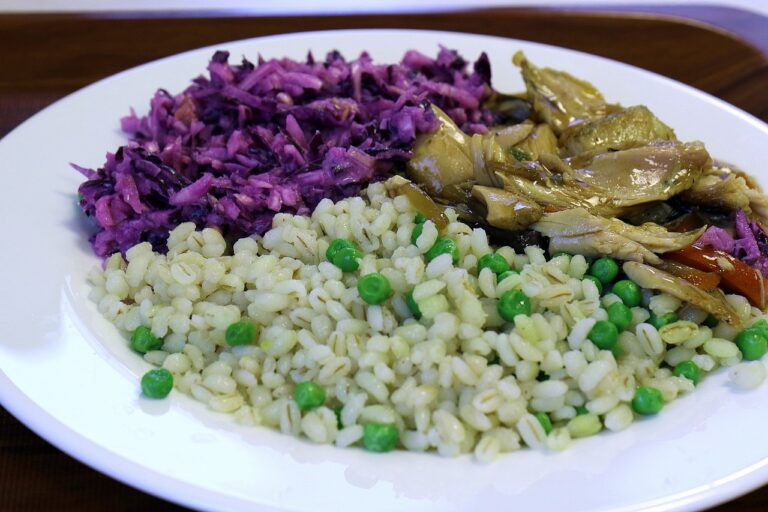The Health Benefits of Fermented Foods: Gut-Friendly Delights.
Fermented foods are packed with beneficial bacteria that can help maintain a healthy balance in your gut. These live microorganisms, such as Lactobacillus and Bifidobacterium, play a significant role in supporting digestion and immune function. By consuming fermented foods regularly, you can replenish the good bacteria in your gut, which may have been depleted due to factors like stress, antibiotics, or a poor diet.
In addition to promoting gut health, fermented foods can also enhance the absorption of nutrients in your body. The fermentation process breaks down certain compounds in foods, making them easier for your body to digest and absorb. This means that by incorporating fermented foods into your diet, you can potentially improve nutrient uptake and overall digestive well-being.
• Fermented foods are rich in beneficial bacteria like Lactobacillus and Bifidobacterium
• These live microorganisms support digestion and immune function
• Consuming fermented foods can replenish good bacteria in the gut depleted by stress, antibiotics, or poor diet
• Fermented foods enhance nutrient absorption in the body
• The fermentation process breaks down compounds in food for easier digestion
• Including fermented foods in your diet may improve nutrient uptake and digestive well-being
Understanding the Role of Probiotics in Fermented Foods
Probiotics are beneficial bacteria that can help maintain the balance of microorganisms in the gut. They are commonly found in fermented foods such as yogurt, kefir, sauerkraut, and kimchi. These probiotics work by replenishing the gut with good bacteria, which can aid in digestion and overall gut health.
When consumed regularly, probiotics can help improve the health of your gut microbiome. The diverse range of bacteria in fermented foods can help support a healthy immune system, reduce inflammation, and even enhance nutrient absorption. Including probiotic-rich foods in your diet can contribute to a happier and healthier digestive system.
Boosting Digestive Health with Fermented Foods
Fermented foods have gained popularity for their potential to boost digestive health. The fermentation process involved in these foods helps in breaking down sugars and carbohydrates, making them easier for the gut to digest. These foods are rich in probiotics, which are beneficial bacteria that support gut health by maintaining a healthy balance of microbes.
By consuming fermented foods regularly, you can improve the diversity of your gut microbiome, leading to better digestion and absorption of nutrients. The probiotics found in fermented foods can also help in reducing symptoms of digestive issues like bloating, gas, and constipation. Including a variety of fermented foods such as yogurt, kefir, kimchi, sauerkraut, and kombucha in your diet can be a simple yet effective way to support your digestive health.
What are fermented foods and why are they good for gut health?
Fermented foods are foods that have been through a process of lactofermentation, where natural bacteria feed on the sugar and starch in the food creating lactic acid. This process not only preserves the food, but also creates beneficial enzymes, b-vitamins, Omega-3 fatty acids, and various strains of probiotics that are beneficial for gut health.
What role do probiotics play in fermented foods?
Probiotics are live bacteria and yeasts that are good for your health, especially your digestive system. They help maintain a healthy balance of gut bacteria and prevent the growth of harmful bacteria. Fermented foods are rich in probiotics, which can help improve digestion, boost the immune system, and support overall gut health.
How can fermented foods help boost digestive health?
Fermented foods can help improve digestion by promoting the growth of good bacteria in the gut, which in turn can aid in the breakdown and absorption of nutrients. They can also help reduce symptoms of digestive disorders such as bloating, gas, and constipation. Additionally, fermented foods can help strengthen the immune system and reduce inflammation in the gut.
What are some common examples of fermented foods?
Some common examples of fermented foods include yogurt, kefir, sauerkraut, kimchi, kombucha, miso, tempeh, and pickles. These foods can easily be incorporated into your diet to help promote better digestive health.







